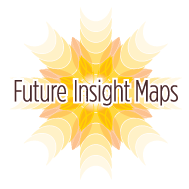The focus is on individual freedom and application of insights and skills in three basic arenas: Applied Critical Thinking, Systemic Thinking for Complexity, and Self-Knowledge for Taking Initiative. There are Topics in each arena, with the participants taking one month per topic, joining with a small cohort of fellow-travelers who apply the ideas and practices to their unique life circumstance. TheFULCRUM focuses on “HOW” we think; it leaves the “WHAT” we think about to the discretion and interests of the individual. Every topic is equally applicable to our professional life, our personal life, and our life as community members.
[spacer height=”20px”]
theFULCRUM focuses on “HOW” we think;
it leaves the “WHAT” we think about to the
discretion and interests of the individual.
[spacer height=”20px”]
This is the first time in the history of the world that young leaders in different cultures can come together, safely, to meet and share in a path of personal and professional and community development. The work is rigorous and there is peer support: self-assessment and trust of our participants is core to our principles and values.
Organizations (NGOs and others) can sign up for a comprehensive, long-term experiential path of development for those staff who are interested. Collaboration off-line where people are based in a single office enables additional and varied opportunities for staff and leaders.
[spacer height=”60px”]
A Sampling of Topics
How do I know if my idea is a good idea?
What are Potent Questions, and how do I craft them?
Personal Strategic Planning
Do I have a comprehensive plan now?
How might I build one?
Complex Issues
When do Systemic Methods make sense?
How do I know if an issue is “complex?”
What are the elements and practice of designing effective meetings? What is a meeting?
Mapping Systems and how it can help us get organized to work with complex issues.

